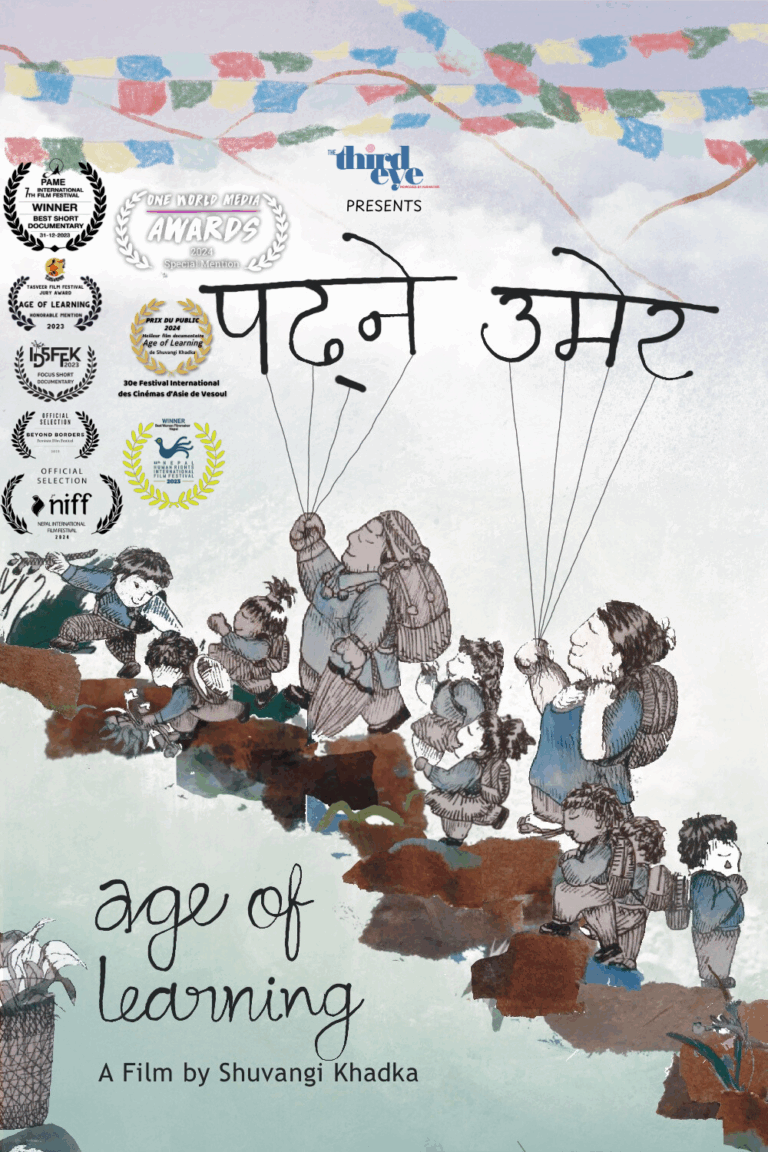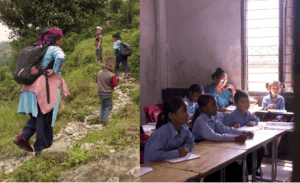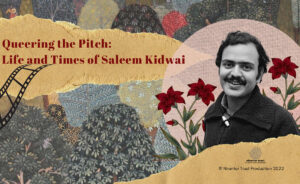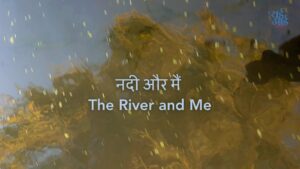In 2016, the global illiteracy rate for women aged 65 years and older was 94%. That’s a staggering number, one that still doesn’t speak of regional and cultural variations in adult education and women’s literacy. What a sample size such as this misses is the minutiae of elderly women’s lives, placed across rural and urban contexts, and very likely, prioritising the needs of the family as far as their physical and emotional capacities allow.
For elderly women in particular, many of whom have spent a lifetime prioritising others’ needs, the decision to study much later in life is far more loaded. Why do they – would they – decide to begin at an older age? Do they really need to learn, people wonder? What are they even going to get out of an adult education initiative? They are past the age for jobs.
The pleasure of reading and the joy of learning maybe only become apparent when education is not utilitarian.

Many years ago, in the hills of Nepal, 12-year-old Shuvangi walked to school with her mother, who was headed to a classroom of her own. It was a school meant for adult education, and for some time, mother and child were students together. Her mother, eventually, had to give it up in favour of the responsibilities that awaited her in the household, and with it, the possibility of a different life eroded under the weight of duty.
Cut to over a decade later – Shuvangi, at the end of our EduLog mentorship, directed a 25-minute documentary film, Padhne Umer (Age of Learning). The film is about two women Palhamu and Bishnumaya, who decide to learn to write their name in their fifties. Between animal herding, farming and cooking, they go up and down steep mountains to reach their schools, and sit with six- and seven-year-olds and learn to write their name.
Palhamu jokes about being an adult in the classroom full of young kids. On being asked, “What if you start crying at school?” she says, “Teachers can scold children, you can’t do that with adults. If they beat me, then I will also set them right.” After five years as a ward member signing off documents and listening to others speak, she is now at school with her great-grandson. “I feel no shame in learning. When you learn a few words, you get curious to learn more. I can read stories—why would I need a job now?”
Bishnumaya walks a path resembling Palhamu’s. She dropped out of school after her father’s death, when she was asked to start working. She later worked in Kuwait and Bahrain as a domestic worker before returning to Nepal, having been consistently humiliated for not being able to read.
Bishnumaya used to collect wrappers of the items she wanted to buy at the market to make sense of words, to be able to recognise them. Today, even though children sometimes irritate her by snatching her pen or teasing her, she finds great joy in learning alongside them. “It’s easy to ask children what I don’t know. They always help, and I feel no shame.”
This International Literacy Day, we’d like to share with you Shuvangi’s film about adult education, a moving reminder that the joy of learning can return to us at any age, at any time.
CAST
Bishnumaya Gurung
Palhamu Sherpa
DIRECTOR
Shuvangi Khadka
PRODUCER
The Third Eye
DOP & Editor
Prakash Chandra Jimba
COLOUR
Nishon Shakya
Sound Design & Music
Abhishek Mathur
Co-producers
Shuvangi Khadka
Prabin Khadka
Prakash Chandra Jimba
Executive Producers
Shabani Hassanwalia
Shivam Rastogi
Read Shuvangi’s essay My Mother’s Report Card.
Age of Learning was the Official Selection – Focus Documentaries and premiered at International Documentary and Short Film Festival of Kerala, 2023. It won Tasveer Grand Jury Prize (Honorable Mention, Best Documentary Short) at Tasveer South Asian Film Festival; the 11th Nepal Human Rights International Film Festival (Best Woman Filmmaker, Shuvangi Khadka); and Best Short Documentary at International Film Festival Pame, Pokhara (Nepal). It was also screened at Beyond Borders Film Festival, New Delhi.
If you would like to organise screenings of the film, do contact us at [email protected].
-
The Third Eye is being written and developed by a team of educators, documentary filmmakers, storytellers; people with extensive experience of gathering narratives, oral histories and developing contextual pedagogies for the rural and the marginalised.




